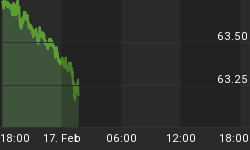The U.S. administration is trying to pressure foreign commodity traders and refiners to suspend their trades with Venezuelan oil in the latest push against the Maduro government. The information comes from unnamed sources that spoke to Reuters.
Such deals are not covered by the latest U.S. sanctions, which is why, apparently, Washington is contacting the buyers directly. According to the sources, the Treasury’s Office of Foreign Assets Control had told the traders and refiners that any sort of a deal, be it direct, indirect, or even a barter deal, would be punished as a breach of sanctions despite these only concerning U.S. entities.
“This is how the United States operates these days. They have written rules and then they call you to explain that there are also unwritten rules that they want you to follow,” one of the sources said.
The Trump administration is prioritizing the suspension of sales of diluents to Venezuela’s troubled state oil company, Reuters notes. PDVSA needs the diluents to make its extra-heavy crude liquid enough to load on tankers for export.
The Reuters report comes days after India’s Reliance Industries said it had stopped supplying PDVSA with diluents from its U.S.-based subsidiary to avoid sanction violation. However, it said it would continue selling the refined products to the Venezuelan company from its Asian and European subsidiaries.
Related: Greed Is Ruling The Markets Once Again
The push against oil traders and refiners comes amid a loss of momentum in opposition leader Juan Guaido’s rise to power. Guaido established control over PDVSA’s U.S. business Citgo earlier this month with the help of Washington and received access to the company’s coffers. This should have financed the opposition’s efforts to overthrow the Maduro government, but for now these efforts are not yielding any results despite the strong support of the United States.
Venezuelan oil exports fell to less than a million barrels daily in the first four weeks after the latest sanctions came into effect in January. That’s down from more than 1.5 million bpd in December. Exports to the United States have fallen to zero as a result of the sanctions, but Venezuela is still shipping oil to Russia and China, as well as India.
By Irina Slav for Oilprice.com

















